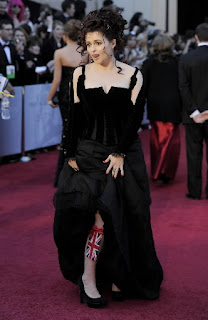Regency Era Smut
You may recall that last week I mentioned a Regency-era tale called The Lustful Turk. I suppose it’s erotica. I had high hopes for this book going in. After all, it’s Regency-era smexiness. What could be better except maybe pictures, which the print version has?
On the whole I would rather troll Shakepeare for dirty puns. (I’ll be right over, Amanda.)
In Preview This Book on Amazon, the pictures looked nice and clear. In the book? Not so much. I could tell the subject matter was racy, but in the print book, the pictures were too small and pixelated. What a disappointment, because there was some artistic merit in them.
The Text of The Turk
The text wasn’t a disappointment, but not in a good way. Early attempts to tell extremely racy stories (de Sade excluded since he could at least write his way out of a paper bag) were predictably bad since 1) the desire to write hot doesn’t necessarily coincide with a talent for such and 2) there was a fairly universal lack of elements we today consider necessary to an entertaining story. Things like plot, character development and something– some nugget of something– that readers can care about.
I don’t know for sure if this is something peculiar to men writing about sex but for pre-20th century raciness, the lack of story elements is the norm. More on that in a bit. Although, I’m pleased to say that this book did have a discernible plot. I’m not saying it’s a good one, but stuff happens!
Great Lines in Literature
However, plot points aside, The Lustful Turk is notable for what I consider one of the greatest lines of literature ever written:
“Seize the virgin!” repeated Ozman, ‘she will be only too honored and happy to escape the pollution of this blaspheming wine bibber.’
Imagine this Regency buck sitting at his club with pen and paper and writing his magnum opus between drinks and bad jokes. What should Ozman say, he probably wondered at this point. He wants his heroine to get kidnapped at her wedding and then nailed by the Lustful Turk, who is not Ozman, by the way. Yes, it’s quite a turning point and full of conflict. Will someone pop her cherry before the Turk gets his chance? Our erstwhile author is at least attempting to create tension. He has another drink and inspiration swells!
Rest assured, the Turk gets his virgin. Several of them actually.
In Which Carolyn Sighs. Many times.
The women are all horrified at being raped until the Turk convinces them they like it, and then hey! Turk-y baby I love you because you can get that big engine ready on a moment’s notice all night every night.
I was not convinced, I’m afraid.
It was authorial wishful thinking with a big dose of stupid ideas that need to die a horrible death. It’s a distasteful trope that lasted well into the 1980’s when Feminists saved all our asses by pointing out how absurd, destructive, hateful and just plain wrong it is to think a man can rape a woman and she’ll eventually like it. It’s pervasive in too much literature and lingers still.
In fact, you can probably yourself think of several literary books that include such false and damaging notions. And, of course, early Romances aren’t sometimes called Rapetastic for nothing. But, then, these women didn’t have a better example. That they often turned that trope on its head is something to celebrate as we also celebrate having moved past that in Romance.
There are all kinds of slurs, cliches and stereotypes. Everywhere you look. Religion? Yup. (An abbott demands sex in return for saving a womans’ life, otherwise, he leaves her to die) People who aren’t white? You betcha! (the whole damn book) The lower classes? But of course! (The heroine’s beautiful servant is badly beaten but the heroine? She is too white and tender and upper class.)
While the distasteful representation of female sexual agency is front and center there’s plenty more in the background. (Dear Anonymous Author: Worried much about women?) I get that he didn’t know any better, but did it have to take us 200 years before we did?
Meanwhile, Back in the Harem
Anyway, the story is told in epistolary fashion, with all the extreme awkwardness of that device that you could possibly imagine. No, imagine more. More. More….. Yes!
Now you’re close.
So more virgins get kidnapped and deflowered and the Turk is indeed very lustful. But he is also a nice guy. Because his very last conquest cuts off his penis and he is totally cool with that! He sends all his ex-virgin white girls home to their loving families. To be fair, one of them is Greek or something.
There is also sequel bait in the form of the heroine’s baby. She’s knocked up at one point, and I think we never find out what happened to the baby. Or maybe we do. But I’m NOT reading through that again to find out.
Byron
Any connection with Byron is quite a stretch. He may be inextricably linked now with the revolution in Greece, but he’s not the only Englishman to go there or be aware of the politics of the revolution. Mentioning Greece in no way connects this book with Byron except for the modern reader who only knows, yeah, Byron — he went to Greece. I doubt very much the author was thinking of Bryon. He was thinking about whether the Turk should deflower another virgin.
Thoughts? Reactions? Opinions? Share in the comments.











